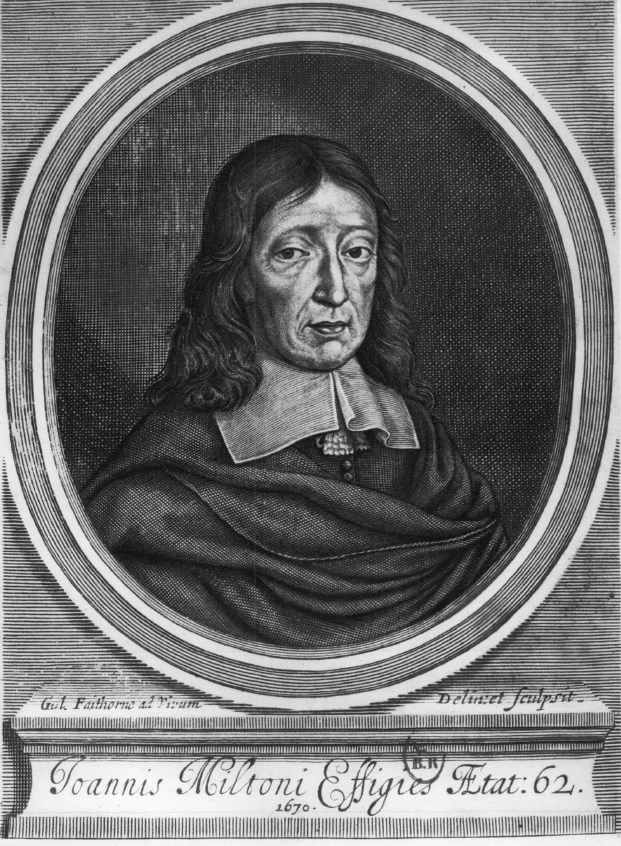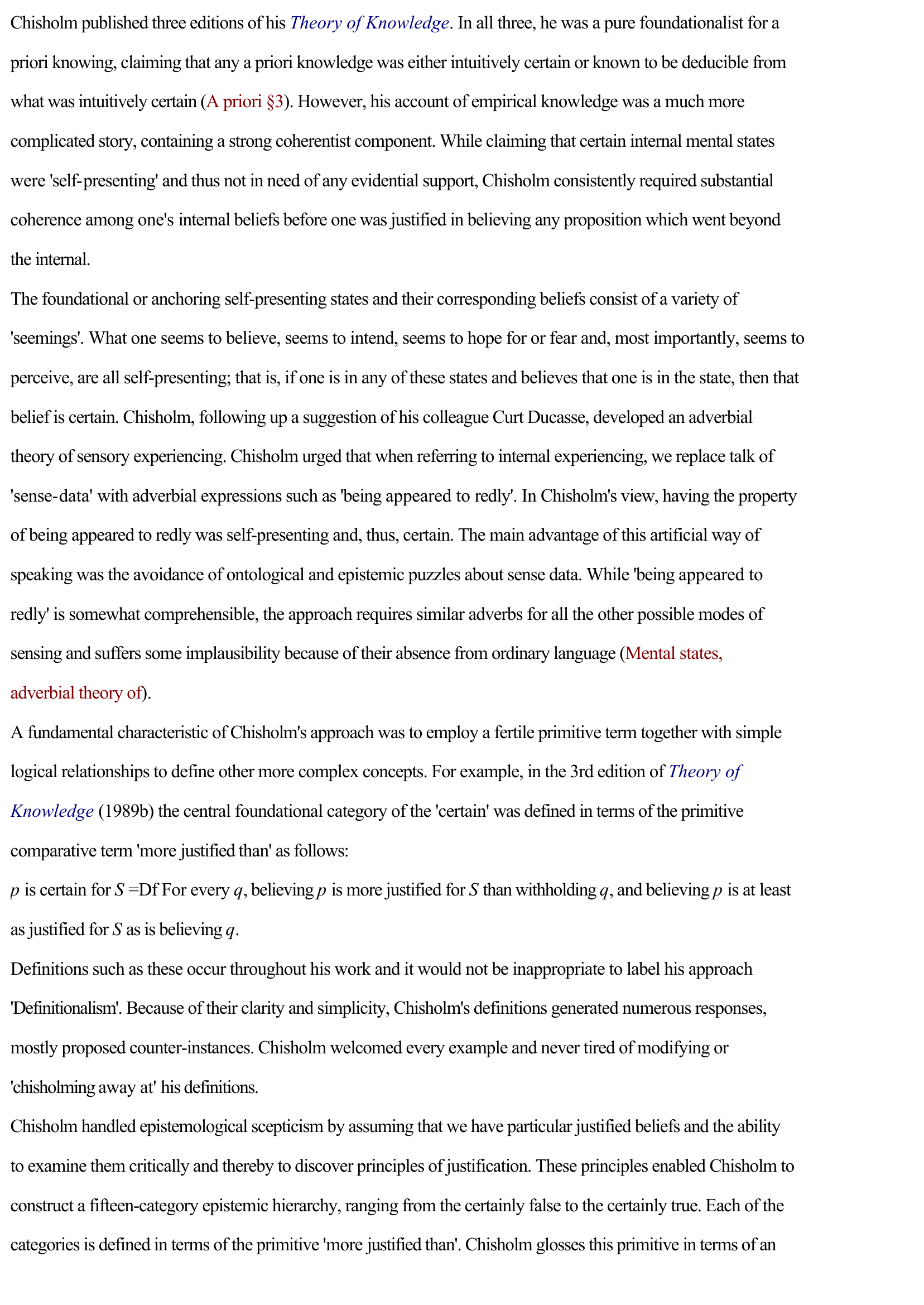Chisholm, Roderick Milton
Publié le 22/02/2012

Extrait du document


«
Chisholm published three editions of his Theory of Knowledge .
In all three, he was a pure foundationalist for a
priori knowing, claiming that any a priori knowledge was either intuitively certain or known to be deducible from
what was intuitively certain ( A priori §3 ).
However, his account of empirical knowledge was a much more
complicated story, containing a strong coherentist component.
While claiming that certain internal mental states
were 'self -presenting' and thus not in need of any evidential support, Chisholm consistently required substantial
coherence among one's internal beliefs before one was justified in believing any proposition which went beyond
the internal.
The foundational or anchoring self-presenting states and their corresponding beliefs consist of a variety of
'seemings' .
What one seems to believe, seems to intend, seems to hope for or fear and, most importantly, seems to
perceive, are all self-presenting; that is, if one is in any of these states and believes that one is in the state, then that
belief is certain.
Chisholm, following up a suggestion of his colleague Curt Ducasse, developed an adverbial
theory of sensory experiencing.
Chisholm urged that when referring to internal experiencing, we replace talk of
'sense -data' with adverbial expressions such as 'being appeared to redly' .
In Chisholm's view, having the property
of being appeared to redly was self-presenting and, thus, certain.
The main advantage of this artificial way of
speaking was the avoidance of ontological and epistemic puzzles about sense data.
While 'being appeared to
redly' is somewhat comprehensible, the approach requires similar adverbs for all the other possible modes of
sensing and suffers some implausibility because of their absence from ordinary language ( Mental states,
adverbial theory of ).
A fundamental characteristic of Chisholm's approach was to employ a fertile primitive term together with simple
logical relationships to define other more complex concepts.
For example, in the 3rd edition of Theory of
Knowledge (1989b) the central foundational category of the 'certain' was defined in terms of the primitive
comparative term 'more justified than' as follows:
p is certain for S =Df For every q, believing p is more justified for S than withholding q, and believing p is at least
as justified for S as is believing q.
Definitions such as these occur throughout his work and it would not be inappropriate to label his approach
'Definitionalism' .
Because of their clarity and simplicity, Chisholm's definitions generated numerous responses,
mostly proposed counter-instances.
Chisholm welcomed every example and never tired of modifying or
'chisholming away at' his definitions.
Chisholm handled epistemological scepticism by assuming that we have particular justified beliefs and the ability
to examine them critically and thereby to discover principles of justification.
These principles enabled Chisholm to
construct a fifteen-category epistemic hierarchy, ranging from the certainly false to the certainly true.
Each of the
categories is defined in terms of the primitive 'more justified than' .
Chisholm glosses this primitive in terms of an.
»
↓↓↓ APERÇU DU DOCUMENT ↓↓↓
Liens utiles
- SONNETS de Milton (Résumé et analyse)
- RODERICK, LE DERNIER DES GOTHS de Robert Southey
- COMUS (résumé & analyse) John Milton
- USHER Roderick. Personnage de la Chute de la maison Usher
- DOCTRINE ET LA DISCIPLINE DU DIVORCE (La) (résumé) John Milton

































